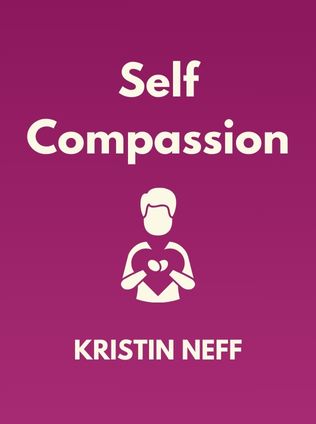
Self-Compassion
The Proven Power of Being Kind to Yourself
By Kristin Neff
Published 04/2011
About the Author
Kristin Neff, an Associate Professor of Educational Psychology at the University of Texas at Austin, is a pioneer in the field of self-compassion research. With a foundation rooted in Buddhist psychology, her work has transformed the way people perceive themselves and their relationship with suffering. Neff co-founded the nonprofit Center for Mindful Self-Compassion, where she has co-developed the Mindful Self-Compassion training and workbook. Her first book, Self-Compassion, published in 2015, laid the groundwork for a new understanding of self-kindness, which she later expanded upon in Fierce Self-Compassion: How Women Can Harness Kindness to Speak Up, Claim Their Power, and Thrive.
Neff’s approach to self-compassion is both profound and practical, making her a leading figure in psychology and mindfulness. Her work draws heavily from Buddhist philosophy, blending it with modern psychological insights to create a unique and accessible method for dealing with life's challenges. As an academic and a practitioner, Neff has dedicated her career to helping individuals cultivate a kinder, more compassionate relationship with themselves.
Main Idea
At the heart of Self-Compassion is the idea that we must treat ourselves with the same kindness and understanding we extend to others in times of failure and pain. Neff argues that self-compassion is a critical tool for managing life's inevitable difficulties, allowing us to respond to our struggles with warmth and understanding rather than harsh self-criticism. This practice is not only essential for our mental health and well-being but also serves as a foundation for more meaningful connections with others.
Neff outlines three core components of self-compassion:
- Self-kindness versus self-judgment
- A sense of common humanity versus isolation
- Mindfulness versus over-identification
These components work together to create a compassionate mindset that can transform our experience of suffering, leading to greater resilience, emotional stability, and overall happiness.
Table of Contents
- Introduction: The Case for Self-Compassion
- Why We Suffer: Understanding the Roots of Self-Judgment
- The Three Components of Self-Compassion
- Self-Compassion in Daily Life
- The Power of Self-Kindness
- Common Humanity: The Glue that Binds Us
- Mindfulness: A Balanced Approach to Suffering
- Obstacles to Self-Compassion
- Benefits of Self-Compassion
- Self-Compassion and Relationships
- Conclusion: Embracing a Compassionate Life
Introduction: The Case for Self-Compassion
Neff begins by making a compelling case for self-compassion, challenging the conventional wisdom that self-criticism is an effective motivator. She argues that far from making us stronger or more successful, self-criticism often leads to anxiety, depression, and a sense of unworthiness. In contrast, self-compassion provides a foundation of emotional stability, helping us to navigate life's ups and downs with grace and resilience.
“When you respond to your failings and pain with kindness and comfort, you can manage the most challenging situations life throws at you.” — Kristin Neff
Why We Suffer: Understanding the Roots of Self-Judgment
In this section, Neff delves into the reasons why we so often turn against ourselves in times of difficulty. She identifies societal pressures, cultural expectations, and evolutionary tendencies as key factors that drive self-judgment. These forces compel us to compare ourselves to others, striving for an unattainable perfection that inevitably leads to feelings of inadequacy and shame.
Neff also explores how childhood experiences, particularly those involving critical or unsupportive parents, can shape our self-concept and lead to lifelong patterns of self-criticism. By understanding these roots, we can begin to dismantle the negative beliefs that fuel our suffering.
“Children who internalize their parents’ criticism believe they’re bad, flawed, and unworthy of being accepted for who they truly are, and that to receive their parents’ love they have to be what their parents want them to be: Perfect.” — Kristin Neff
The Three Components of Self-Compassion
Neff outlines the three essential components of self-compassion, explaining how each one contributes to a healthier, more balanced approach to dealing with life's challenges.
Self-Kindness versus Self-Judgment
Self-kindness involves treating ourselves with the same care and understanding that we would offer to a close friend. Rather than berating ourselves for our mistakes and shortcomings, we should respond with warmth and support. This shift from self-judgment to self-kindness is crucial for building resilience and maintaining emotional well-being.
Sign up for FREE and get access to 1,400+ books summaries.
You May Also Like
The Subtle Art of Not Giving a F*ck
A Counterintuitive Approach to Living a Good Life
By Mark MansonRich Dad Poor Dad
What the Rich Teach Their Kids About Money - That the Poor and Middle Class Do Not!
By Robert T. KiyosakiHow To Win Friends and Influence People
The All-Time Classic Manual Of People Skills
By Dale CarnegieFreakonomics
A Rogue Economist Explores the Hidden Side of Everything
By Steven D. Levitt and Stephen J. Dubner



















